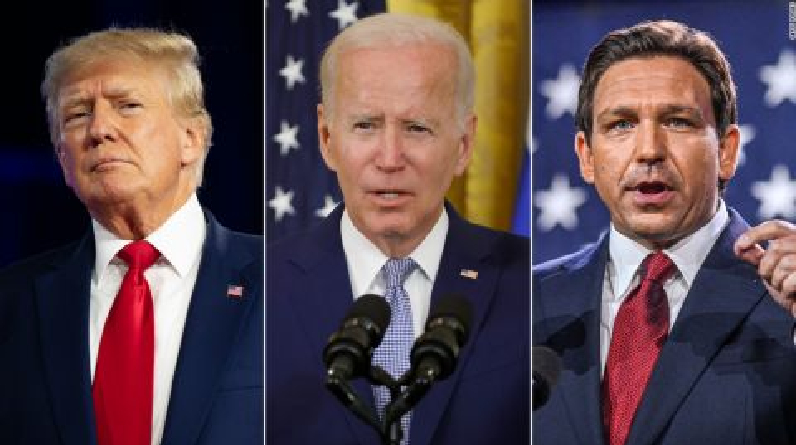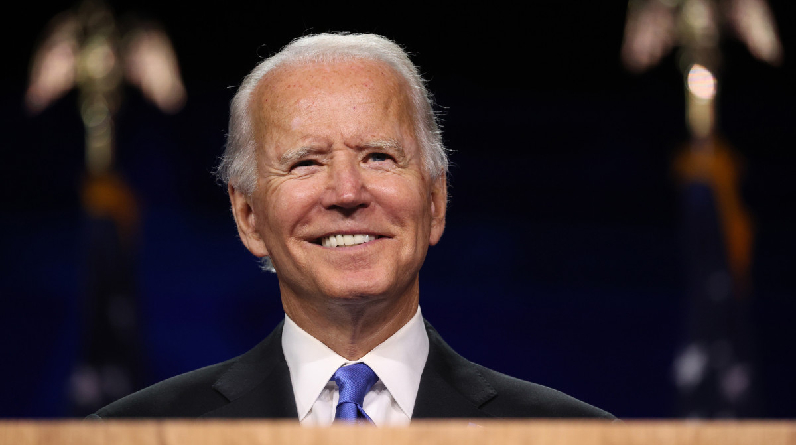Joe Biden’s legislative agenda had stalled six months prior, his approval rating was in the low 30s, and seventy-five percent of Democrats wanted a different candidate for president in 2024 than Joe Biden. However, since then, a lot of positive developments have occurred for the president: His approval rating went from the low 30s to the mid 40s, he signed a number of major pieces of legislation, many of which passed with bipartisan support, and the Democrats did surprisingly well in the midterm elections. As a result of their recent victories, Democrats have begun to rally once again around Vice President Joe Biden. Should he seek reelection, he would almost certainly be the Democratic Party’s nominee.
Everything points to Biden considering another run for president. He has stated his “intention” to run for president, and according to recent articles in Politico and The Hill, he may formally announce his candidature as early as mid-February. However, there are arguments that suggest Biden may decide against seeking reelection and instead step down. There is no denying that the president’s age is beginning to show, and that trend will only quicken. Biden would be 86 years old at the end of a hypothetical second term. Biden is also well-liked for his role as a family man, so it’s possible that he’ll opt to spend his retirement years with them instead of with military leaders and political advisers.
In light of this potential outcome, it is important to consider what would follow if Biden resigned. In 2024, if no Democratic incumbents were running, how would the primary election look? Who do you think would emerge victorious from that primary, and how might they fare in a broader election?
Implications for the Year 2024

What can we learn from these examples from the past, and how do they foreshadow the year 2024? We shouldn’t draw too many conclusions from these two cases, but there are some important takeaways we can apply to Biden and the year 2024 from the historical record.
First, incumbent presidents rarely decide not to run for reelection unless they are facing an extremely dire political failure that will inevitably lead to a formidable primary challenge and deep partisan division. If we take this at face value, we can assume that Joe Biden will seek reelection in 2020: he has no major failures on his record comparable to the Korean or Vietnam Wars, and he is not facing an internal Democratic revolt or insurgent primary challenge.
However, this is qualified by the fact that Biden has an obvious excuse not to run for president that has never been so pronounced before: his age. Biden, at the age of 78 on the day of his inauguration in 2021, became the oldest president in American history. Reagan, who finished second, left office at age 77, while Truman and Johnson did so at ages 67 and 59, respectively, when they announced they would not run again.
Second, the party establishment is more likely to back candidates they’ve picked than to back base-pleasing mavericks or insurgents. Vice President Kamala Harris, who would almost certainly become the establishment favourite if Biden were to step down, can breathe a sigh of relief at this development. While Harris’ rise would not be guaranteed, she would have substantial party backing and institutional resources to begin her campaign for the nomination.
Democratic activists may like Harris, but she presents a potential challenge for the party if she were to win the general election. Her approval ratings are in the mid- to high-30s, which is even lower than those of Vice President Joe Biden. And she may have the same issues as establishment candidates Stevenson and Humphrey in 1952 and 1968, when they lost the presidency because voters blamed them for the incumbent’s failures even though they had none of the advantages of incumbency.
In the third place, when a president declines to run again, his or her party usually ends up losing the general election. The Democrats’ chances in the 2024 election would be diminished without Biden’s leadership. Second, the idea that the party of a retiring president will always lose the next presidential election is not established by a mere two examples from the past. However, Democrats should be concerned with history and should work to nominate the candidate who would be the strongest in 2024 rather than the candidate who is preferred by the establishment.
If Joe Biden decides not to run for president, the Democrats should seriously consider this last point. Democratic voters should demand a wide-open primary, rather than uniting behind Kamala Harris as Biden’s handpicked successor. And unlike in 1952 and 1968, party leaders won’t be able to simply anoint a candidate of their choosing to represent the party’s base voters. Primaries today are competitive in a way that they were not in the 20th century, as we saw in 2016 when Bernie Sanders nearly took out Hillary Clinton and again in 2020 when there were enough viable candidates to fill two debate stages. Even if the establishment comes together behind Harris in 2024, a maverick or an underdog still has a good shot at the nomination thanks to the open and competitive nature of modern primaries.
The party has amassed a formidable pool of potential candidates over the past few years. Democrats who meet this description include, but are not limited to, the following: Governor of Michigan Gretchen Whitmer; Senator from Georgia Raphael Warnock; Secretary of Transportation Pete Buttigieg; Senator from Massachusetts Elizabeth Warren; Governor of California Gavin Newsom; Senator from Vermont Bernie Sanders; Governor of Pennsylvania Josh Shapiro; and many more I won’t list, but whom Wikipedia helpfully and comprehensively lists.
However, Joe Biden is the key player here. If he doesn’t change his mind before 2024, Biden will be the Democratic nominee. Still, the party shouldn’t want to be caught off guard if and when Biden decides he’s had enough. For this reason, Democrats need to prepare for a future in which the current president and vice president are not in office in 2024. The years 1952 and 1968 aren’t the worst ones to look at to begin this process.
















Leave a Reply